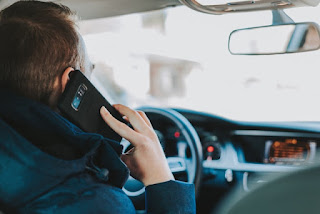Pro Tips for Motorhome & Campervan Travel in Europe
Master the Road Like a Seasoned Nomad
Europe’s winding roads, hidden gems, and diverse cultures
are best explored by motorhome or campervan. But to elevate your adventure from
"good" to "unforgettable," you need insider knowledge.
These pro tips—curated from seasoned travelers—will help you save money, avoid
pitfalls, and unlock the freedom of life on the road.
1. Navigation & Route Hacks
Ditch the Main Roads
Scenic Detours: Use ViaMichelin’s “scenic route” filter or
Google Maps to avoid highways. Explore France’s Route des Grandes Alpes or Germany’s
Romantic Road.
Toll-Free Savings: In France, stick to Routes Nationales
(N-roads) to bypass €100+ in tolls.
Offline Maps Are Lifesavers
Download regions on Google Maps or Maps.me for areas with
spotty signal (e.g., Norwegian fjords, Scottish Highlands).
Avoid ZTL Zones in Italy
Historic city centers (Zona Traffico Limitato) ban
non-resident vehicles. Use Park4Night to find parking outside zones and take
public transit in.
2. Budget Tricks to Stretch Your Euros
Fuel Savings
Apps: Use Fuelio or Waze to find the cheapest diesel/petrol
stations.
Loyalty Cards: Sign up for TotalEnergies or Shell rewards
for discounts.
Drive Efficiently: Stick to 90 km/h on highways to save 20%
on fuel.
Free Overnights
Wild Camping: Legal in Sweden/Norway; use Park4Night for
vetted spots.
Supermarket Parking: Many Lidl or Auchan stores in
France/Spain allow overnight stays (ask permission first).
Budget-Friendly Campsites
France’s Aires: Basic facilities for €5–€15/night.
Harvest Hosts: Stay at vineyards or farms for free
(membership required).
3. Mastering Off-Grid Living
Power Management
Solar Panels: Install 200W+ panels for fridge and device
charging.
Battery Packs: Portable power stations like Jackery keep
gadgets alive.
Energy Etiquette: Run generators only during daytime hours.
Water Wisdom
Refill Smart: Use public taps (cemeteries, parks) or gas
stations.
Greywater Tricks: Collect dishwater in a bucket to dispose
of responsibly.
Waste Disposal
Cassette Toilets: Empty at designated ChemPort stations
(common at campsites).
DIY Composting: Use biodegradable bags for food scraps.
4. Cultural Savvy & Local Etiquette
Learn Key Phrases
“Is overnight parking allowed here?”
French: “Le stationnement nocturne est-il autorisé ici?”
German: “Ist Übernachtungsparken hier erlaubt?”
Spanish: “¿Está permitido aparcar aquí durante la noche?”
Respect Quiet Hours
Most European campsites enforce silence from 10 PM–7 AM.
Shop Like a Local
Hit farmers’ markets (Marché Provençal in France, Mercato
Centrale in Italy) for fresh, affordable produce.
5. Safety & Security
Anti-Theft Tactics
Steering Wheel Locks: Visible deterrents like Disklok
discourage break-ins.
Fake Safe: Leave a decoy wallet with expired cards in the
glovebox.
Border Prep
Brexit Docs: Carry your V5C logbook, Green Card insurance,
and Animal Health Certificate (pets).
Emergency Numbers: Save 112 (EU-wide emergency) and your
insurer’s pan-European breakdown number.
Weather Watch
Mountain Passes: Check Bison Futé (France) or ÖAMTC
(Austria) for closures.
Winter Kit: Pack snow chains (mandatory in Alpine regions)
and a thermal windscreen cover.
6. Tech & Gear Must-Haves
Apps You’ll Actually Use
Park4Night: Find free overnight spots with reviews.
Flush: Locate public toilets and dump stations.
iTranslate: Converse with locals in real-time.
Compact Gear
Collapsible Everything: Buckets, chairs, and sinks save
space.
Portable BBQ: Weber Go-Anywhere grills let you cook
lakeside style.
7. Avoid These Rookie Mistakes
Overpacking: You don’t need 10 pairs of shoes. Europe has
laundromats.
Ignoring Height Restrictions: Low bridges and tunnels
abound—use MyLPG.eu to plan routes.
Forgetting Cash: Some tolls, campsites, and rural areas
don’t take cards.
8. Sustainability on the Road
Plastic-Free Swaps: Use silicone food bags and reusable
coffee cups.
Support Eco-Campsites: Look for EcoLabel or Green Key
certifications.
Offset Your Carbon: Donate to Atmosfair to balance your fuel
emissions.
The Pro’s Packing Checklist
✅ Foldable solar panel + battery
✅ Crit’Air sticker (France) and
toll tags (Liber-T, Telepass)
✅ Language cheat sheet + offline
maps
✅ Emergency toolkit (jump leads,
tire repair kit)
✅ Biodegradable soap and
toiletries
Final Thought: Embrace the Detours
The magic of motorhome travel lies in spontaneity—a hidden
beach in Portugal, a village festival in Slovenia, or a sunrise over the Swiss
Alps. With these pro tips, you’re equipped to navigate Europe’s complexities
while keeping the spirit of adventure alive.
Got a pro tip of your own? Share it in the comments—let’s
build a community of savvy road warriors! 🚐✨
#CampervanLife #RoadTripHacks #EuropeTravel #VanLifeProTips
Note: Always verify local laws and road conditions before
travel. Rules and amenities can change with seasons or regulations. Safe
travels! 🌍🔧
This blog is only a guide and European travel rules change frequently. Always check and verify with your own sources.













.jpg)
